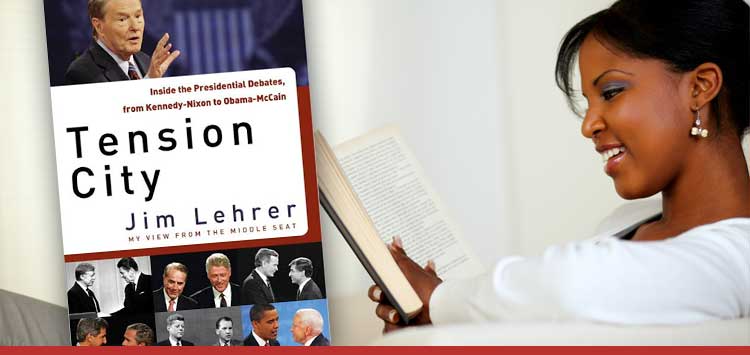As Hofstra University prepares to host a presidential debate on October 16, 2012, an understanding of how debates contribute to elections and American democracy is both timely and instructive. Vice President Richard Nixon and Senator John F. Kennedy inaugurated modern presidential debates with four live, televised meetings in 1960, and President Gerald Ford and Governor Jimmy Carter resumed the practice in 1976 with three presidential debates (there was also one vice-presidential debate). Since then, presidential candidates have participated in two or three debates in the weeks preceding every general election, and, with the exception of 1980, the vice-presidential candidates typically have met once as well. Candidates prepare extensively for these debates, with particular attention to avoiding verbal gaffes or appearances that convey an unfavorable impression to viewers.
Jim Lehrer’s fascinating book Tension City: Inside the Presidential Debates, from Kennedy-Nixon to Obama-McCain, recounts historic moments in the debates and provides an insider’s perspective on the opportunities as well as the challenges they present for candidates, moderators, live audiences, and the viewing public. A veteran journalist who presided over eleven presidential and vice-presidential debates during his career, Lehrer brings a unique, engaging, and witty perspective on the debates and the candidates. His insights raise fundamental questions about the nature of modern American presidential campaigns and how the leadership skills that help a candidate win election apply – or do not – to governing in the White House.
As you read this book, think about the following questions, which we will explore, along with other related topics, in our model class:
- Why do presidential candidates participate in debates?
- How do primary debates differ from general-election debates?
- How have advances in technology influenced the structure of debates?
- Which presidential candidates are eligible to participate in general-election debates, and why?
- How, if at all, should the structure and timing of presidential debates be changed to promote American democracy?


